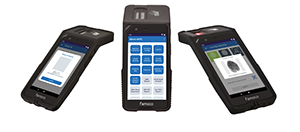

The threat of fraud, identity theft, and financial crime continues to rise. One of the most effective ways to combat these threats is through a robust Know Your Client (KYC) process. KYC is a fundamental component of modern business operations, providing an essential defence against illegal activities and safeguarding both organisations and their clients.
KYC refers to the process of verifying the identity of customers to ensure they are who they claim to be. This process is vital for industries that handle sensitive information or financial transactions, such as banking, real estate, and telecommunications. Effective KYC protocols help organisations mitigate the risk of fraud, money laundering, and other financial crimes by confirming the legitimacy of clients.
Most KYC processes today, in essence, only validate the authenticity of a person’s identity documents. These inadequate KYC measures can lead to significant risks, from financial losses to reputational damage. Without verifying the actual identities of clients, businesses open themselves to legal penalties, loss of trust, and the costly aftermath of fraud.
Compliance
Many regions around the world have enacted data protection laws that mandate the secure handling of customer information. For instance, laws like the General Data Protection Regulation (GDPR) and the Protection of Personal Information Act (POPIA) require businesses to safeguard personal data through secure verification and record-keeping practices.
Failure to comply with these regulations can result in heavy penalties and long-term damage to a company’s reputation. KYC processes are integral to compliance with such regulations. They ensure that organisations not only protect their own interests but also the privacy and security of their customers.
Fraud and identity theft pose serious risks, not just from new customers, but from existing ones as well. Long-standing clients may also become victims of identity theft, which can lead to criminal activities being carried out in their names. Without periodic identity verification, businesses can unknowingly become facilitators of financial crimes, leading to substantial regulatory and legal consequences.
Managing risk
Businesses that fail to implement effective KYC systems may find themselves ill-equipped to manage risk, leaving their operations and clients vulnerable. A thorough KYC process builds trust, ensuring that both businesses and customers are protected from fraud and identity theft.
KYC is no longer limited to financial institutions; businesses across industries are adopting it as part of their risk management strategies and for compliance purposes. This includes sectors like real estate, automotive, telecommunications, and even retail.
KYC can be employed across various sectors to enhance security and compliance. In real estate transactions, it helps verify buyer identities, thereby preventing fraud and ensuring adherence to local property laws.
In micro-lending services, KYC is used to authenticate loan applicants, ensuring that funds are allocated to legitimate individuals and reducing the risk of fraudulent loans. Similarly, in the automotive sector, KYC is crucial for confirming customer identities, which helps prevent financing fraud and unauthorised transactions.
KYC simplified
With the advancement of digital technology, the KYC process has become more accessible to all organisations. Biometric verification, such as fingerprint and facial recognition, combined with real-time data validation, allows businesses to confirm identities quickly and accurately. This reduces the time and resources required for manual verification and decreases the chances of human error, further safeguarding both businesses and customers. By automating the KYC process, businesses can streamline customer onboarding, reduce costs, and enhance data accuracy. Automation also ensures compliance with evolving regulatory frameworks and provides a scalable solution that grows alongside business needs.
Ideco’s eKYC, built on the Famoco FP200 mobile biometric device, offers every organisation, big or small, a powerful, affordable solution to mitigate risk and ensure compliance. Unlike other solutions that only validate documents, it provides real-time customer identification using advanced fingerprint and facial recognition technology, directly interfacing with the Department of Home Affairs for verification.
Key features of Ideco eKYC include efficient onboarding and streamlining the identity verification process to accelerate customer onboarding. It ensures data accuracy by eliminating manual entry errors, while biometric technology enhances fraud prevention, safeguarding against identity theft and fraudulent activities. This comprehensive KYC process delivers significant cost savings by reducing operational expenses and boosting overall efficiency.
The benefits of eKYC
The benefits of implementing a thorough KYC process go beyond legal compliance. It helps businesses build stronger relationships with clients by fostering trust and ensuring that all interactions are conducted in a secure and transparent manner. KYC not only reduces fraud but also increases customer satisfaction by creating a seamless and secure experience.
Moreover, automated KYC processes are estimated to save businesses up to 25% in operational costs while reducing fraud by up to 50%. As more businesses move toward digital KYC solutions, onboarding processes’ speed, efficiency, and security are expected to increase significantly.

The importance of knowing your client cannot be overstated. Implementing a strong KYC process is essential for protecting businesses from fraud, ensuring compliance with data protection regulations, and maintaining the trust of clients.
As digital transactions continue to grow, organisations must adopt modern KYC solutions to safeguard their operations and navigate the challenges of an increasingly interconnected world. By prioritising secure identity verification, businesses not only mitigate risks, but also position themselves for long-term success in an era where trust and security are paramount.
Seven reasons to adopt eKYC
1. Efficient customer onboarding - Ideco eKYC allows credit providers to quickly and easily verify customer identities and other data, reducing the time and effort required to onboard customers.
2. Improved data accuracy - Ideco eKYC reduces the likelihood of human error, ensuring that customer information is accurate and current.
3. Reduced fraud risk - Ideco eKYC uses fingerprint and face authentication, which helps prevent fraudulent activities, such as identity theft and money laundering.
4. Cost savings - Ideco eKYC reduces the need for manual KYC processes, saving credit providers time and resources, and improving overall customer satisfaction.
5. Data privacy - Ideco eKYC ensures customer data is secure and protected, maintaining confidentiality and integrity.
6. Compliance with regulations - Ideco eKYC helps credit providers comply with regulatory requirements, such as FICA (Financial Intelligence Centre Act) and POPIA (Protection of Personal Information Act).
7. Full scalability - Ideco eKYC can be easily integrated into existing systems, allowing credit providers to scale their operations efficiently.
Source: https://www.ideco.co.za/identity-management/ekyc
| Tel: | +27 12 749 2300 |
| Email: | contact@ideco.co.za |
| www: | www.ideco.co.za |
| Articles: | More information and articles about Ideco Biometrics |

© Technews Publishing (Pty) Ltd. | All Rights Reserved.